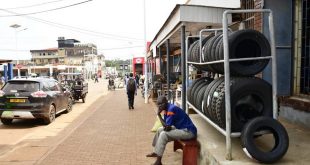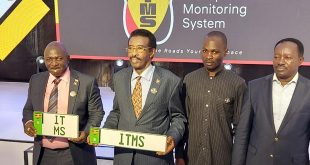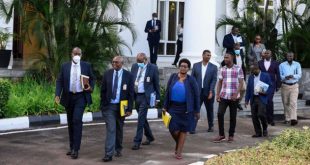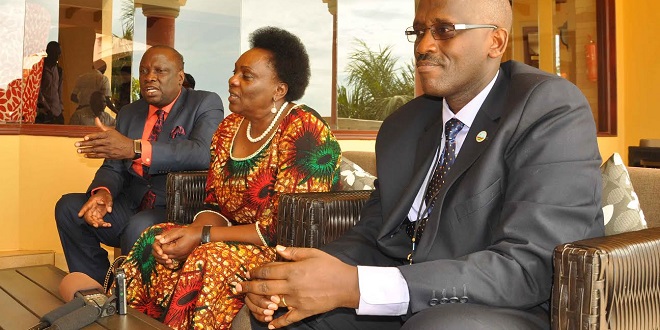
Unreported cases of Sexual and Gender Based Violence (SGBV) are on the rise in Uganda, a trend that Minister for General Duties in the Office of the Prime Minister Mary Karooro-Okurut says the country needs to halt.
Making reference to statistics from The 2011 Uganda Police Force Report she said, “It is becoming too much. The number of people who go through it, especially the women and the girls, is becoming very alarming”.
Okurut said many people were ignorant about SGBV and some felt it was a family affair. She said that coupled with the fact that most perpetrators were family close members or friends, people hardly report such issues.
Opening a two day colloquium on “Documentation, Investigation and Reporting of Sexual Violence in the Great Lakes Region” organized by International Conference of the Great Lakes Region (ICGLR) at Lake Victoria Serena Hotel, Okurut expressed concern that more than 50 percent of people in Uganda prisons were jailed for Sexual Gender related cases.
“A number of perpetrators of sexual gender related cases are free because when suspects are sent to court for prosecution, the convictions rate is low due to the technicalities in evidence collection and presentation in courts of law,”she said on Monday.
Over 100 judges, lawyers, the police and military, medical practitioners, social workers, development partners and civil society from all 12 states of the ICGLR attended the regional meet. Okurut represented Minister of Gender, Labour and Social Development Janat Mukwaya.
“Today, one in three women worldwide experience physical or sexual violence, mainly by an intimate partner – someone known to them. This is according to UN,” she told delegates.
“Women still make up the majority of survivors of violence. The underlying cause of violence against women is unequal power relations between men and women according to the Gender Based Violence Prevention Network.”
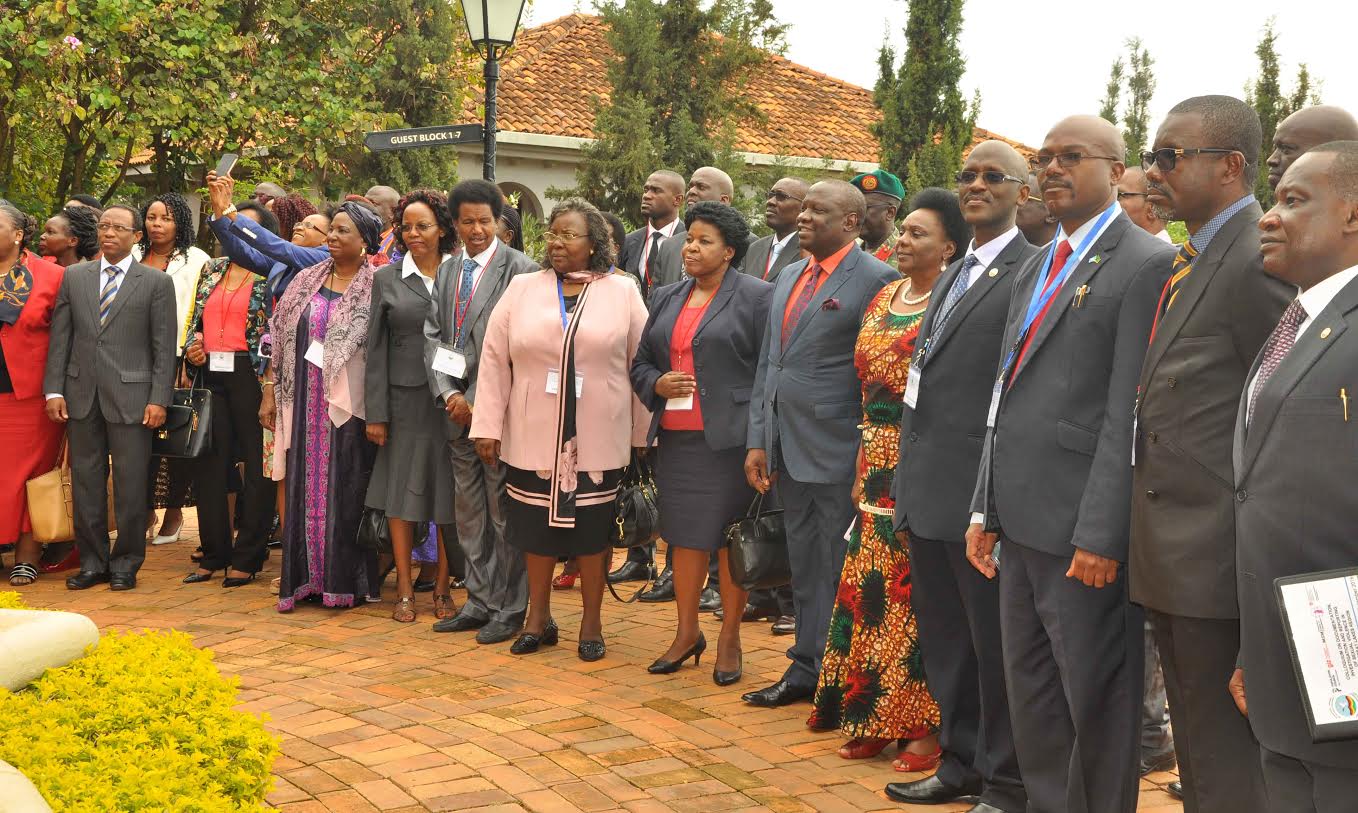
In an interview with the press later, she was angry that many people were ignorant about SGBV. She said some felt it was a family affair, and coupled with the fact that most perpetrators were family close members or friends, people hardly report such issues.
“Some men at work pat the bums of women jokingly without knowing that its sexual harassment. Other women and men are dying silently in homes. People need to know that what they really go through is not a family affair but something that is criminal and must be made known to the right authorities,” she said.
According to European Union Agency for Fundamental Rights 2014 statistics, between 15 and 76 percent of women are targeted for physical or sexual violence in their lifetime, according to the available country data. Most of this violence takes place within intimate relationships, with many women (ranging from 9 to 70 percent) reporting their husbands or partners as the perpetrator.
Reports indicate a little over one in five women has experienced physical sexual violence from a partner .
The two day colloquium was convened by the Regional Training Facility (RTF), an institution of the ICGLR, in collaboration with Population Council in Kenya, GIZ, Swiss cooperation, FIDA-Uganda, and NICHE/MSM as part of the efforts to end Sexual based violence in the 12 member states of Angola, Burundi, Central African Republic, Republic of Congo, Kenya, Uganda, Republic of South Sudan, Sudan, Tanzania and Zambia.
Supreme Court judge Dr. Esther Kisaakye Kitimbo proposed that member states in the international conference of the Great Lakes region incorporate in their judicial system protection of witness and victims of sexual and gender based violence.
Justice Kisaakye noted that failure to protect the victims brings about fear in them and also discourages reporting of cases of sexual violence to police and giving evidence in court.
The acting director of the regional training facility Nathan Byamukama, said that the two day conference was aimed at reviewing the member states reports on the status of sexual and gender based violence legislation, special procedures and remedies for investigating sexual crimes as well as identify capacity building gaps that can resolve through sensitization and training.
The colloquium was organized ahead of International Human Rights Day on 10 December, 2016 and as part of the global End Violence Against Women campaign from 25th November to 10th December, 2016.
They reviewed each country report on the status of Sexual and Gender based Violence (SGBV) legislation, special procedures and remedies for investigating sexual crimes as well as identify capacity building gaps that the ICGLR -RTF can help resolve through sensitization and training.
****
editor@independent.co.ug
 The Independent Uganda: You get the Truth we Pay the Price
The Independent Uganda: You get the Truth we Pay the Price
